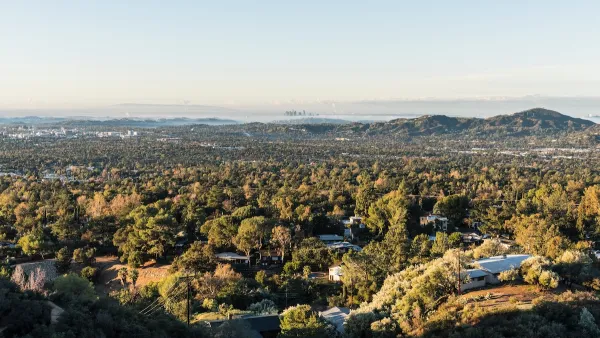A UCLA study reveals that language barriers left many Asian residents in Los Angeles County without critical wildfire evacuation and recovery information, highlighting the need for more inclusive emergency communication strategies.
A recent UCLA study highlights how language barriers hindered Asian communities’ access to emergency evacuation and recovery resources during the recent wildfires in Los Angeles County. As reported by Ruben Vives, the study found that over 12,000 Asian immigrants and their descendants within the four evacuation zones—Palisades, Eaton, Hurst, and Hughes—require language assistance. Many fire warnings and relief services were only available in English and Spanish, leaving limited-English-proficient residents without crucial information. Advocacy groups, such as the Asian American and Pacific Islanders Equity Alliance, stepped in to fill the gap by providing multilingual resources, but gaps in government communication persisted.
County officials acknowledged the issue, explaining that their emergency alert system, maintained by the Federal Emergency Management Agency (FEMA), only supports English and Spanish. However, they emphasized that other methods, including social media, in-person outreach, and multilingual staff at Disaster Resource Centers, were used to inform residents. Despite these efforts, researchers argue that more needs to be done to ensure clear, timely, and culturally appropriate communication, particularly in diverse neighborhoods with residents who speak a wide range of languages, including Chinese, Korean, Tagalog, Thai, and Vietnamese.
Experts stress the need for targeted emergency preparedness efforts that account for the linguistic and cultural diversity of Los Angeles County. The study found that older Asian residents were particularly vulnerable due to higher rates of limited English proficiency. Researchers and advocates are calling for stronger partnerships between government agencies and community organizations to improve language access in disaster response plans. Programs like California’s Listos initiative have demonstrated the importance of proactive community engagement, and advocates hope the county will adopt similar measures to prevent future communication breakdowns.
FULL STORY: Asian communities faced language barriers during L.A. wildfires, UCLA study says

National Parks Layoffs Will Cause Communities to Lose Billions
Thousands of essential park workers were laid off this week, just before the busy spring break season.

Retro-silient?: America’s First “Eco-burb,” The Woodlands Turns 50
A master-planned community north of Houston offers lessons on green infrastructure and resilient design, but falls short of its founder’s lofty affordability and walkability goals.

Delivering for America Plan Will Downgrade Mail Service in at Least 49.5 Percent of Zip Codes
Republican and Democrat lawmakers criticize the plan for its disproportionate negative impact on rural communities.

Test News Post 1
This is a summary

Test News Headline 46
Test for the image on the front page.

Balancing Bombs and Butterflies: How the National Guard Protects a Rare Species
The National Guard at Fort Indiantown Gap uses GIS technology and land management strategies to balance military training with conservation efforts, ensuring the survival of the rare eastern regal fritillary butterfly.
Urban Design for Planners 1: Software Tools
This six-course series explores essential urban design concepts using open source software and equips planners with the tools they need to participate fully in the urban design process.
Planning for Universal Design
Learn the tools for implementing Universal Design in planning regulations.
EMC Planning Group, Inc.
Planetizen
Planetizen
Mpact (formerly Rail~Volution)
Great Falls Development Authority, Inc.
HUDs Office of Policy Development and Research
NYU Wagner Graduate School of Public Service





























